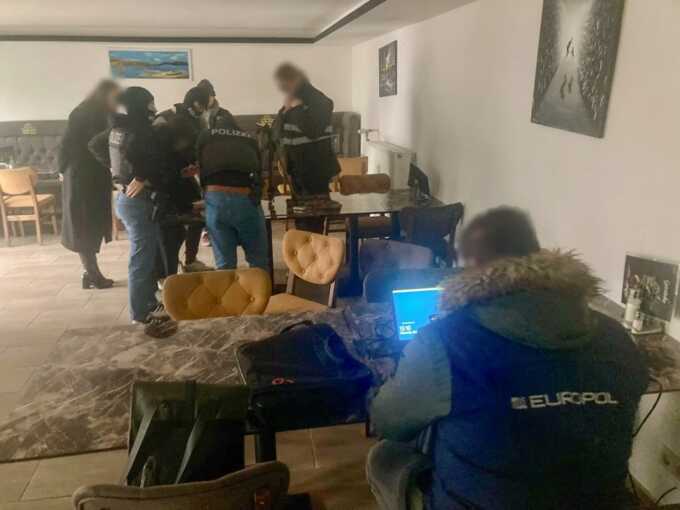EU operation dismantles violent smuggling ring
Europol and Eurojust coordinated efforts to arrest 25 suspects, seize assets, and dismantle a violent criminal group profiting off migrants.
German authorities, supported by a Europol-led taskforce, have dismantled a sprawling criminal network accused of smuggling migrants, trafficking weapons, and forging documents along the Balkan route, Europol stated Thursday.
The November 20 operation mobilized more than 450 officers across Europe, leading to 25 arrests in Austria, Bosnia and Herzegovina, Germany, Poland, Serbia, and the United Kingdom. Among those arrested were three high-value targets, including an Iraqi citizen accused of heading a linked smuggling ring.
During the operation police also raided 31 locations, seizing vehicles, electronic devices, and cash.
According to Europol, migrants paid between 4,500 euros ($4,715) and 12,000 euros ($12,575) for the perilous journeys, which were coordinated through hawala operators in Turkey and Europe. Investigators estimate the network earned 3.4 million euros ($3.56 million) in illicit profits. Hawala, a cashless system of trusted brokers, has long been used in the Middle East and South Asia for discreet money transfers.
The criminal network, active since 2021, spanned 20 countries and subcontracted local gangs to facilitate migrant transport and shelter. Primarily composed of Syrian nationals, the group used the Balkan and Eastern European routes to smuggle migrants to destinations including Germany, the Netherlands, and the U.K., according to Europol.
The organization earned a reputation for brutality, using violence against migrants and rival smugglers alike. In one instance, two Syrian women died during a network-orchestrated operation in Latvia. Europol linked the group to 120 investigations and identified at least 750 migrants smuggled in 2024 alone, though the actual number could exceed 2,200.
Europol established the Operational Taskforce in April 2024, working with Austria, Bosnia and Herzegovina, Germany, the Netherlands, Poland, Serbia, and the U.K. to uncover the network’s structure and financial activities. A Joint Investigation Team, coordinated by Eurojust, facilitated judicial cooperation across borders.
The Balkan route remains a key pathway for illegal migration into Europe, with over 35,000 migrants traveling through Bosnia and Herzegovina in 2023, according to the U.N. Refugee Agency. Europol has flagged the Bosnia and Herzegovina-Croatia border as a major hotspot for migrant smuggling, warning of escalating criminal activities in 2024.
Read more similar news:
Comments:
comments powered by Disqus

































